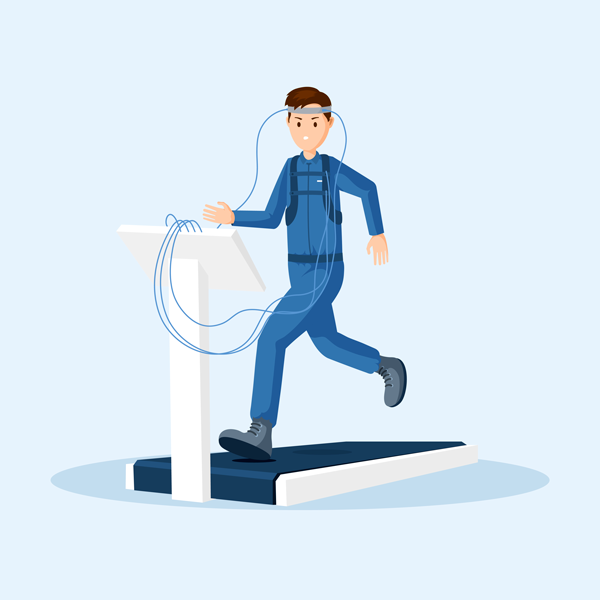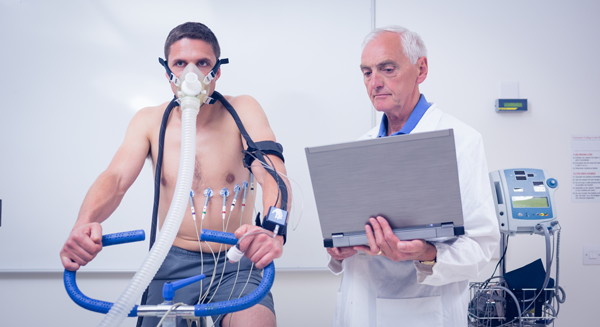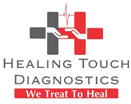
WHAT IS A TREADMILL TEST
A treadmill test or TMT test is also called an exercise stress test/ exercise electrocardiogram. This test can determine whether you are at risk of having heart disease or not. Along with that, it can determine up to which level, an exercise can be safe for you. In this test, you will be told to walk on a treadmill and the performance of your heart is monitored as well as how much can your heart make up before having arrhythmia or any abnormality in blood supply. The TMT test cost varies from lab to lab and the TMT test cost also depends on your location.
As you start walking on the treadmill, the speed and incline of the treadmill will be increased, so as to push your heart to perform more under a stressful condition. Your ECG, Blood Pressure & heart rate will be monitored throughout the procedure.
NEEDS OF A TMT TEST
- Treadmill test is helpful in assessing symptoms, such as chest pain, shortness of breath or palpitations to determine whether or not they are coming from the heart.
- It’s used to see if there is enough blood supply by your heart when you are exercising.
- Find out if you have coronary heart disease and if you need more testing.
- Observe the working of heart valves.
- Help you design a safe workout/exercise formula.
BEFORE A TMT TEST
- Do not eat anything except water at least 4 hours before the test.
- Do not consume caffeine for at least 12 hours before the test.
- If you use the inhaler for breathing, get it along with you for the test.

PROCEDURE IN GENERAL
As you arrive for the test, you will be given a gown to wear which has a front opening. A technician will take your ECG, blood pressure and heart rate before the test. Then at ten different points on your chest, alcohol will be applied and electrodes will be put on. You will be told to walk on a treadmill and as time passes, the speed and inclination will increase. Your ECG, Blood Pressure & heart rate will be monitored as you are undergoing this test.
These three factors will again be examined after the test is completed. The results before, during and after the test will be piled up and given to your doctor for examining them.
While you exercise, if you experience any kind of discomfort or breathe shortness, dizziness or fainting, you will be told to stop the test immediately.
POST PROCEDURE
Your doctor will examine the results and see if you have any underlying heart defects or malfunctions in your heart. You will be called and be given an idea of what should be the next step and the next line of treatment.

